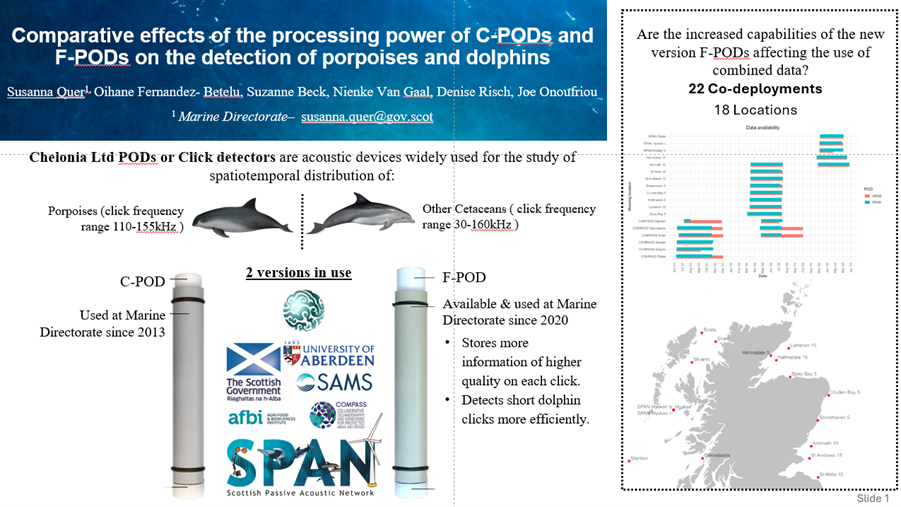Marine
Highlights from the MASTS Annual Science Meeting 2024
November 12, 2024 by Marine Directorate Communications No Comments | Category Marine Directorate Science, Science in Government
Marine Directorate scientists recently attended the MASTS (Marine Alliance for Science and Technology for Scotland) Annual Science Meeting, where they explored critical marine science topics like blue carbon, sustainable marine resources, and marine ecosystem health. This gathering emphasized the importance of innovative research in addressing marine sustainability and climate change challenges.
Workshops Towards Shaping Our Perspectives
Marine Directorate colleagues participated in three significant workshops that provided insights into some of the most pressing issues in marine science today:
- Workshops Towards Shaping Our PerspectivesBlue Carbon Knowledge Gaps: This session focused on improving data for blue carbon ecosystems, essential in carbon sequestration and climate mitigation.
- Sea Lice Monitoring Innovations: Participants discussed advanced tools for sea lice detection, vital for managing populations and protecting wild salmon stocks.
- Sustainable Marine Resource Management: Strategies and policies for ecological stewardship were examined to balance resource use with marine ecosystem health.
These workshops provided actionable insights that our team plans to incorporate into future policy and marine management initiatives.
Showcasing Our Expertise
Our colleagues shared their knowledge through several key presentations:
- Prof. Mark Inall presented on the role of Chief Scientific Advisor for Scotland’s Marine Directorate, emphasizing science’s influence on policy.
- Meadhbh Moriarty discussed using ensemble modelling to reduce uncertainty in sea lice dispersal patterns, a critical aspect of effective sea lice management.
- William R. Macdonald highlighted the broader ecological impacts of offshore wind farms on stratified shelf seas.
- Alexander Murray introduced the “Knowledge Strength” approach for refining policy advice, particularly in salmon lice dispersal.
- The meeting concluded with Bee Berx providing insights into ocean warming in Scottish waters, examining the effects of temperature changes on marine ecosystems.
Representatives from other directorates, such as the Offshore Wind Directorate and the Directorate for Culture and External Affairs, presented updates on Scotland’s marine energy research and Arctic connections.
In addition to these talks, Susanna Quer from the Renewable and Ecology Group presented an e-poster on Comparative Effects of the Processing Power of C-PODs and F-PODs on the Detection of Porpoises and Dolphins. This research investigates the effectiveness of two different passive acoustic monitoring devices in detecting cetaceans, a key component in monitoring marine biodiversity and informing conservation efforts.
Innovative Marine Research and Future Directions
We extend our gratitude to MASTS for hosting such an impactful event and to all the attendees for fostering a collaborative and forward-thinking environment. Our colleagues look forward to applying these insights and furthering our commitment to sustainable marine management in Scotland.
Tags: MASTS



Leave a comment